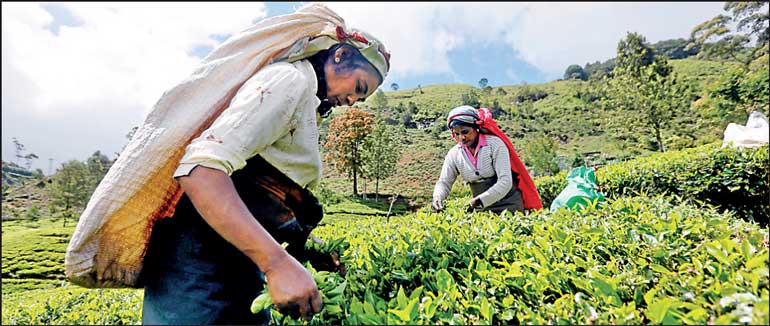Monday Feb 23, 2026
Monday Feb 23, 2026
Thursday, 20 June 2024 00:00 - - {{hitsCtrl.values.hits}}


Dr. Roshan Rajadurai
The Planters’ Association of Ceylon (PA) criticised the recent implementation of a Rs. 1,700 daily wage for workers at Elkaduwa Plantations Ltd. as a political manoeuvre, claiming that the Regional Plantation Companies (RPCs) could similarly raise wages if the Government provided financial support.
PA Spokesperson Dr. Roshan Rajadurai noted that the Government has allocated Rs. 5 billion for payments to State-run plantation companies. “If the Government can also fund the RPCs, we can afford the wage increase too. To raise the daily wage to Rs. 1,700, RPCs need an additional income of over Rs. 5 billion,” he stated.
Dr. Rajadurai warned that the wage hike would impose a significant burden on RPCs, increasing their annual costs by over Rs. 35 billion, including EPF/ETF and gratuity payments. He highlighted that these statutory payments had not been made to the three State-run plantation company workers for over a decade.
He questioned the profitability of Elkaduwa Plantations Ltd., pointing out that Government attempts to sell it had failed over the past 20 years. “It is unfair to threaten RPCs and claim they will be taken back after their significant contributions to the economy,” he said.
Dr. Rajadurai also stressed that RPCs listed on the Colombo Stock Exchange (CSE) cannot be expropriated without violating Securities and Exchange Commission (SEC) rules, the Companies Act, and other statutory provisions.
When asked about potential Government plans to sell RPCs to Indian companies, Dr. Rajadurai stated that Indian tea plantations also face management challenges.
“I have visited the plantations in Azam and South India’s estates and they too struggle to manage them. But the workers there have to pluck 34 kilos a day to earn Indian Rupees 240 and they only get one Rupee per additional kilo. Whereas in Sri Lanka, our workers pluck only 18 kilos and earn Rs. 1,150 per day, with an additional Rs. 40 per kilo,” he explained.
Dr. Rajadurai noted that instead of selling the RPCs, the Government can mirror the revenue share model the PA has advocated for over a decade, which the Indians too have implemented.
For over a decade, the PA has promoted a productivity-linked wage model or revenue share model, aligning worker compensation with productivity and auction revenue. “Under the previous wage structure, workers on a revenue share model earned more than the newly gazetted minimum wage,” he added, noting that 30-40% of crops already come from this model through tea smallholders.
Dr. Rajadurai argued that implementing the revenue share model would benefit workers, RPCs, the industry, and the economy. “Had the trade unions and others agreed to the revenue share model, the workers would have earned a lot of money within the past decade. It is probably one of the reasons why some of them opposed the proposal – so that they can keep the workers under their belts,” he stressed.
He warned that closing RPCs would devastate the tea and rubber industry, affecting over 10% of the country’s population and risking the livelihoods of over three million people dependent on these sectors.
“If RPCs are closed down, what are the other industries available in Nuwara Eliya that can provide work for over 10% of the population that are dependent on the plantation industry?,” he argued.
He pointed out that even before the recent wage hike, tea and rubber sector workers had the highest minimum wage among all 48 sectors regulated by the Wages Board.
Disruptions to production or quality standards, he cautioned, could harm export markets and competitiveness. Dr. Rajadurai cited the high costs of fertiliser, energy, and other inputs, and lower productivity per worker compared to India and Kenya, as additional strains on the industry.
Dr. Rajadurai also criticised previous Government decisions, such as the glyphosate and fertiliser bans, for causing substantial production and market losses.
He dismissed claims that 30% of RPCs are uncultivated, asserting that only 2% are uncultivated due to reasons like forest reserves and riverbanks.
Dr. Rajadurai emphasised that RPCs are essential to the economy and should be supported rather than undermined by ad hoc Government decisions.